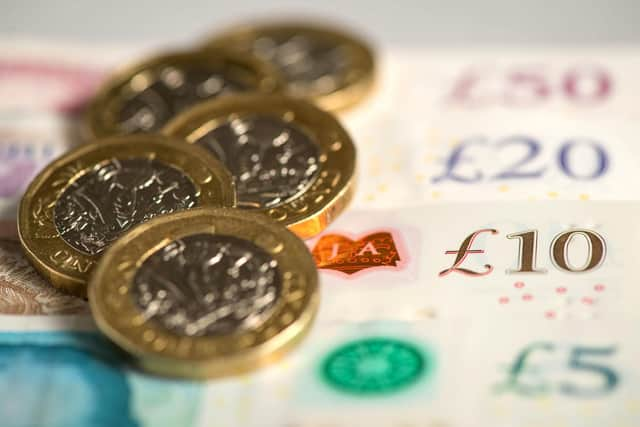Cost of living crisis: What is a recession, what happens during a recession and is a UK recession likely in 2022?
and live on Freeview channel 276
Pressure is building on households as the cost of living crisis worsens in the UK.
Many households are feeling the lingering financial effect of the Covid-19 pandemic and in April 2022, the UK economy contracted for the second month in a row.


Advertisement
Hide AdAdvertisement
Hide AdThe Office for National Statistics (ONS) stated that gross domestic product (GDP), which is a measure of the size of the economy, had fallen by 0.3 per cent in April, with all three main sectors suffering a fall in output for the first time since January 2021.
The ONS explained that it had marked the first time GDP had fallen for two months in a row since March and April 2020 when the pandemic hit the UK, causing the economy to crumble.
But what is a recession and is it likely that one will happen in the UK this year?
Here's everything you need to know:
What is a recession?
The falling figures across the UK have sparked fears of another recession.
Advertisement
Hide AdAdvertisement
Hide AdRecessions typically occur when there is a widespread drop in spending.
This may be triggered by various circumstances including a rise in unemployment, rise in bankruptcies, falling interest rates, falling asset prices, lower consumer spending, or a large-scale anthropogenic or natural disaster, like a pandemic.
During a recession, a number of negative effects can occur.
The economy will plummet, meaning that workers may lose their jobs as companies make fewer sales and their profit margins reduce.
Overall, the country's economic output declines, and this can even affect other countries that have strong trade links.
Is a UK recession likely this year?
Advertisement
Hide AdAdvertisement
Hide AdRecently, the UK has experienced two major events that could spark a recession, such as the Covid-19 pandemic and the Russia-Ukraine conflict.
Both instances have caused widespread financial difficulties, with the rise of inflation and the cost of everyday essentials, such as food and fuel, increasing.
The ONS stated that it is seeing anecdotal evidence widely across the economy of firms being hit by record fuel and energy prices, in particular the manufacturing sector.
Chancellor of the Exchequer, Rishi Sunak, said: ‘Countries around the world are seeing slowing growth, and the UK is not immune from these challenges.’
Advertisement
Hide AdAdvertisement
Hide Ad‘I want to reassure people, we're fully focused on growing the economy to address the cost of living in the longer term while supporting families and businesses with the immediate pressures they're facing.’
The Chancellor recently announced a further £21bn support package for struggling households to tackle the cost of living crisis, including a £400 discount on gas and electricity bills for every home.
However, many people have voiced their concerns that more measures will be needed to help households as inflation is already running at nine per cent in the UK and is expected to soar past 10 per cent in the autumn as prices continue to rise.
Across the UK, fuel prices have hit new records, with the average cost of filling up a typical family car with petrol rising to over £100 for the first time last week.
Advertisement
Hide AdAdvertisement
Hide AdThe Bank of England is also expected to raise interest rates for the fifth time in a row on Thursday (June 16), from one per cent to 1.25 per cent, as they attempt to rein in inflation.
Samuel Tombs, of Pantheon Macroeconomics, is forecasting the economy to contract overall between April and June as the cost-of-living crisis hits hard, but still believes the UK will dodge a full-blown recession.
He said: ‘A recession - two quarters of negative growth - remains unlikely.
‘Households’ real disposable incomes should rise in both the third and fourth quarters now that the Chancellor has announced an extra £15 billion in grants during these quarters, equal to nearly two per cent of their likely income.’

